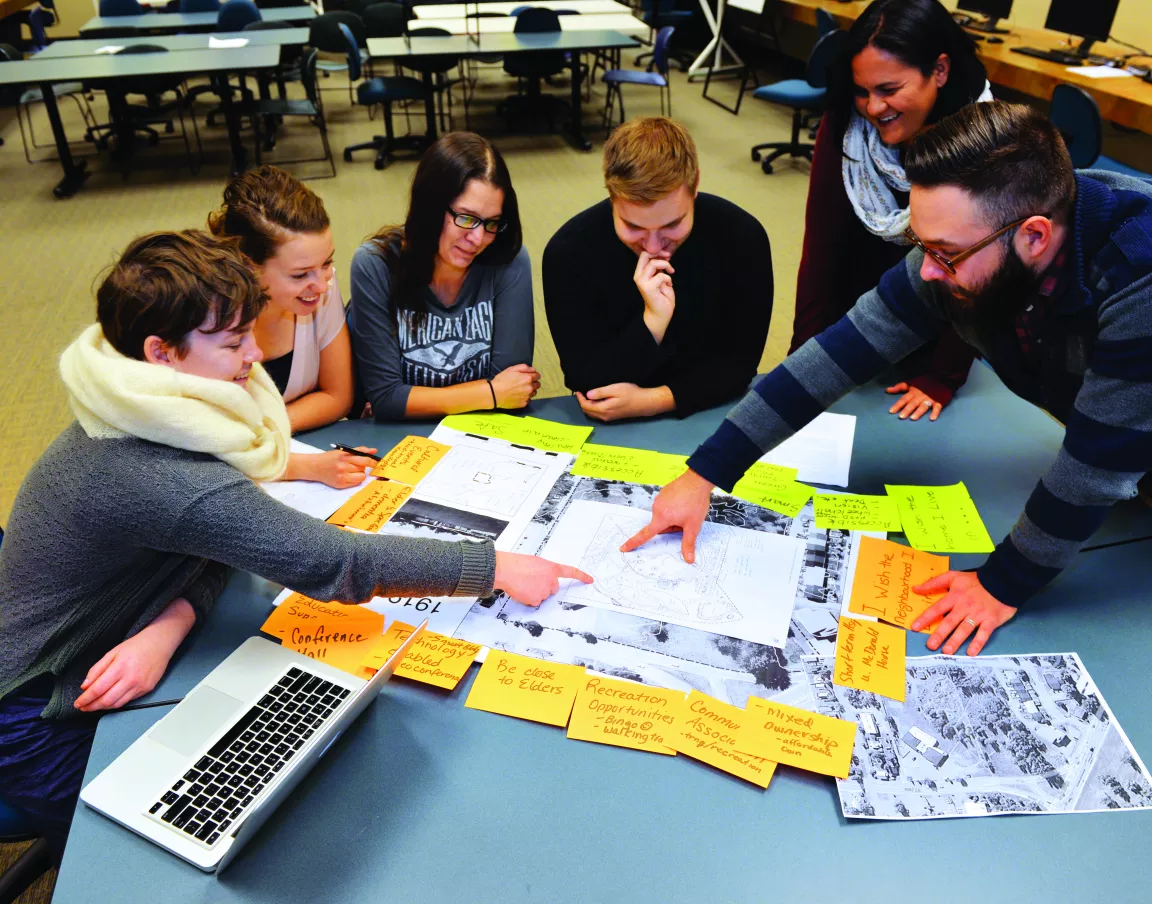Building a Community Through Experiential Learning
Environmental Planning students gain real-life experience designing a housing project

In one semester, Rebecca Delorey gained valuable experience working with a client, as part of a team, on a real-life project.
It’s exactly what the fourth-year Environmental Planning (ENPL) student was searching for when she enrolled in ENPL 415 – Ecological Design.
Delorey and her classmates were tasked in September 2016 with creating a design concept for a livable urban village that the Aboriginal Housing Society of Prince George (AHSPG) is exploring as a possible development for a 6.7-acre parcel of land near Prince George’s downtown core.
The ENPL 415 class was part of UNBC’s Undergraduate Experiential Service Learning program that’s designed to extend the classroom experience beyond the typical university setting. UNBC students involved in these types of courses learn by doing and grow their leadership skills in preparation for the challenges they will face beyond graduation.
The students connected with First Nations Elders about traditional living arrangements and carried those discussions into their concept and final design.
It was a daunting challenge, but one the four students—Delorey, Catherine Lessard, Tyson Baker and Heather Mitchell—were excited to take on.
ENPL Assistant Professor Dr. Mark Groulx, with help from co-instructor Sara-Lynn Harding, redesigned the course from a lecture-style to a studio-type course, facilitating rich involvement between the students, the AHSPG, the neighbourhood, and stakeholders, including the City of Prince George.
“This course brought everything we’ve learned in the last four years into practice,” said Delorey.
The course was made possible thanks to contributions to the Innovation Fund in Experiential Learning, which is increasing the number and types of hands-on courses available to students, inspiring next-generation leaders.
In December, the students presented their final concept at a community open house hosted by the AHSPG.
Their plan depicted a village of 250 housing units, including 50 assisted living units, 30 single detached units, 30 accessible units on the ground floor, 30 townhouses and 110 apartments.
Since then, Prince George City Council unanimously approved the rezoning of the property and the AHSPG has made an offer to purchase it. Funding and further community engagement is required for the project to continue.
Groulx was impressed with the creative ideas the students brought into the design process, and the collaborative energy they brought to the project.
“I’m excited to teach more planning courses like this. Experiential learning lets students link their learning to an ongoing process of community change, and to see the impact of their efforts in action,” he said. “For our students, we see this type of hands-on, applied learning having consistent pay off in the high rate of our students who obtain jobs in their field, and ultimately in producing the type of positive community change that we consistently see from UNBC School of Environmental Planning alumni.”